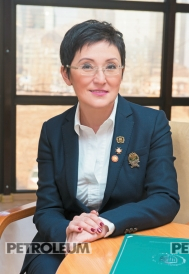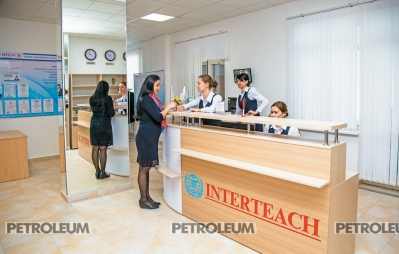Social Responsibility
Investments in Human Capital
Saule Jundubayeva, DBA, Chairman of the Board, Kazakh Corporation of Health and Medical Insurance Interteach
 Investments in Human Capital
Investments in Human CapitalThe development of national economy in terms of economic and foreign policy challenges requires the consolidation and activation of all resources available from the state power. In prospect, integration of organizational, managerial, entrepreneurial resources will allow to form a long-term strategic program for innovative development of the economy of the Republic of Kazakhstan.
Investments in human capital are one of the most important forms of investment in many developed market economies. Effective social policy is one of the main factors that contributes to significant improvements of the major indicators in the area of human capital development. In this regard, investments in human capital are a relevant dimension of state investment policy, primarily the investments in the areas that contribute to the qualitative features of a person: improvement of health care, increasing funds for education and improvements of its quality, development of science, creation of innovation systems.
Investing in the development of human capital includes a wide range of possible directions, one of which is the transformation of the social economy’s subsystem that affects public healthcare as an element of human capital restoration and reproduction.
Currently, health is included among the priority global issues considered during the discussion of the questions related to the Kazakhstan's national wealth, labor potential and labor resources.
For more than 25-years since the proclamation of its independence Kazakhstan has gone through the difficult path of legal base formation, economic and social development. Currently, the main achievement of the Republic of Kazakhstan is a recognition of its position on the world stage with a stable economic growth and the improvement of its quality of life.
N.A. Nazarbayev noted that "the diffusion of a healthy lifestyle and the development of medicine will increase the life expectancy of Kazakhstanis to 80 years and above Kazakhstan has to become one of the safest and most comfortable countries for human habitation in the world. All our actions on the way to the achievement of the Strategy-2050 main goal must follow clear principles. And one of these principles is the strengthening of Kazakhstanis’ welfare, which implies that the social well-being of ordinary people in the country should be the most important indicator of our progress towards the main goal."
At the macroeconomic level of the investigation into health, as an economic category, a special term “Public Health as a resource” is used–health and social resource and potential of the society, which contributes to national security.
The process of human capital reproduction as part of the national wealth of the country is impossible without corresponding investments. These investments contribute to the restoration and maintenance of human creative abilities; moreover, they have an impact on the formation of the future workforce generation’s human capital. In particular, they are directly related to preventive health care, availability of high quality medical services, maintenance of a healthy lifestyle, sport exercises, recreational activities.
On the micro level, investments in human capital are represented by such costs as labor skill development, payment of the disability sick lists, costs of labor protection, corporate voluntary health insurance, payment of medical and other social services for company employees etc.
 Investments in Human Capital
Investments in Human Capital
Health insurance is one of the most common methods used by people and various companies to reduce losses from risky situations. Its main purpose is to guarantee medical assistance to the citizens in case of an insured event at the expense of the accumulated funds and to cover costs of preventive measures. By investing in their employees, firms seeking to strengthen their labor efficiency increase productivity, reduce downtime and thus strengthen their competitiveness.
Thus, investments in the health capital through health insurance is the basis for human capital in general, as they extend the length of the employable part of human life, and thus slow physical deterioration of human capital.
Assessing human capital, we may note that it is closely integrated in the structure of modern production and corresponds with other factors of the economic process. Respectively, investments in human capital are productive only when they are backed by the size of investments in modern technologies, medical insurance, and safe production.
Thus, we can say that investment in the health care sphere is an integral part of investments into the human capital, as it ensures the maintenance of population’s health, and as a result it keeps the amount of human resources preserved, and increases the employment potential of the country. Consequently, it promotes GDP growth, which provides the improvement of the state economy as a whole.



